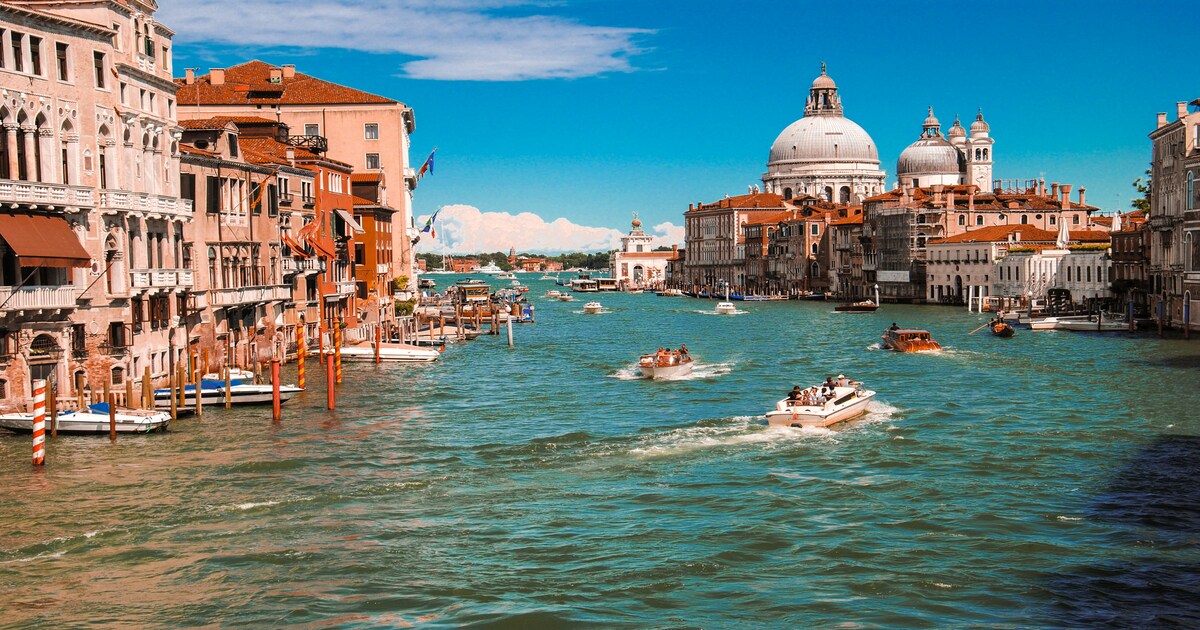Italy’s digital nomad visa has had buzz around it ever since the government first announced plans to offer one in March 2022. Between the country’s fascinating history, beautiful vistas, and incredible cuisine, it’s no wonder Italy is the fifth most-visited country in the world.
For a long time, however, would-be applicants were in the dark on visa details. Until now.
In the wake of significant legislative progress, information on the digital nomad visa has been trickling in. Below, we’ve rounded up everything we know about the visa, including when it goes live, who’s eligible, how long it lasts, and more.
Key Updates for 2025: Italy's Digital Nomad Visa
- To qualify for Italy’s Digital Nomad Visa in 2025, you must now demonstrate an annual income of at least €28,000.
- Applicants are required to have comprehensive health insurance covering their entire stay in Italy.
- The visa application fee is set at €116 per person.
Snapshot of expat life in Italy
Population: 58.9 million
Capital city: Rome
Currency: Euro
Official language(s): Italian
Approximate number of American expats: ~16,000
Background on the Italian visa for digital nomads
As COVID-19 normalized remote work, many countries hoping to boost their economies began launching digital nomad visas. Italy was among them, announcing plans to offer one and later signing a decree into law in March 2022. However, the decree provided few concrete details on the requirements, process, and launch date.
For nearly two years, many remote workers wondered: When will the Italy digital nomad visa be available?
In February 2024, Italy’s Ministries of the Interior, Foreign Affairs, Tourism, and Labor signed a digital nomad visa implementation decree and applications went live in April of that year.
Italy nomad visa requirements & details
Eligibility & duration
To apply for Italy’s digital nomad visa, you must meet some basic criteria:,
- Be from a country outside the European Union: EU nationals already have the right to live and work in any other EU country, so the digital nomad visa does not apply to them. As such, this visa is specifically for those whose home countries lie outside the EU
- Have a clean criminal record: Applicants (and their employers) must not have been convicted within the last five years on charges related to illegal immigration, human trafficking, and labor exploitation
- Work remotely: The visa is only open to remote workers who perform highly qualified work activities for foreign (i.e. non-Italian) companies through technological tools
Once granted, the visa can last for one year. Upon expiration, visa holders may renew it annually as long as they still meet the requirements.
Spouses and minor children may apply for visas through the main applicant as long as they provide the required documentation.
Note:
Unlike some other visa categories, Italy has announced no limit on the number of permits available for digital nomads.
Visa requirements
You must also meet specific qualifications to apply for the visa related to:
- Income: The minimum income requirement for Italy’s digital nomad visa is 3x the minimum for exemption from healthcare costs, which comes out to €30,000 (~$31,320) per year
- Health insurance: Applicants must purchase a private health insurance policy that covers medical treatment and hospitalization throughout all Italian territory for the duration of their stay
- Accommodation: Digital nomads must have already secured accommodation in Italy, at least for a temporary stay
- Experience: To successfully apply for the Italian digital nomad visa, you must already have six months of experience as a remote worker
Application process
The Italy digital nomad visa application process involves:
- Gathering all required materials:
- Valid passport & copy
- Proof of income (e.g. paychecks, bank statements)
- Health insurance contract
- Proof of accommodation (e.g. lease)
- Proof of experience (e.g. CV)
- A signed document from your employer permitting you to work abroad
- A signed statement declaring that you have not been convicted of certain crimes within the last five years
- Note: As of now, applicants do not need to include a certified background check. However, Italian authorities may confirm with the relevant authorities at random.
- Long-term visa fee ($124.60 per applicant)
- Submitting your application at your nearest consular office
- Note: Depending on the office, you may need to schedule an appointment beforehand
- Receiving approval
- Traveling to Italy
- Applying for a residence permit within eight days of arrival
- Registering with the Italian Tax Authority
Preparing for your move to Italy
To wrap things up in the US and make your transition to life in Italy as smooth as possible, we’ve put together a brief checklist:
- Schedule a doctor’s appointment to catch up on vaccines & get prescriptions for any medications you might need to take with you (at least three months, if possible)
- Check out the cost of living for your desired location & draw up a budget
- Terminate any contracts or subscriptions you won’t need anymore (e.g. utilities, streaming services, gym memberships)
- Set up a mail forwarding address
- If you have a pet, either look up what you need to do to bring them with you or arrange for their care in your absence
- Buy tickets for your flight to Italy & any other transportation you need to get to your new hometown
- Look up what to bring, create a list, & pack your bags
- Sell, donate, or store any possessions you won’t be bringing with you
- Notify your bank of your travel plans so they don’t flag purchases abroad as suspicious (or worse, freeze your cards)
- If you own property, consider whether you want to rent or sell your house
- Research Italian mobile providers & banking options
- Learn about the Italian culture & brush up on some basic Italian
- Reach out to other digital nomads in Italy on Reddit (try r/digitalnomad, r/Italy, or the subreddit for your new hometown) as well as expat Facebook groups
Life as an expat in Italy
Best places for digital nomads to live in Italy
Italy is a beautiful country with many different great places to live. The following three stand out as some of the best options for digital nomads:
Rome
Few cities are as iconic as Rome: the Coliseum, the Pantheon, Trevi Fountain… but the Eternal City is much more than just tourist attractions. With world-class restaurants, charming cafés, bustling piazzas (plazas), and dozens of museums, you’ll never run out of things to do.
Add to that the friendly, welcoming locals, beautiful green spaces, and a central location that make it an excellent travel hub, and you may never want to leave.
Florence
If you live and breathe art and culture, you’d be hard-pressed to find a better place to live than Florence. As the birthplace of the Renaissance, it’s no surprise that Florence is home to stunning, centuries-old architecture and fine art museums.
However, this small yet charming city also boasts a diverse, international population, low crime rate, and proximity to nature.
Palermo
Palermo, the capital of the southern island of Sicily, has become an expat haven in recent years. Locals and visitors alike love to spend time on the beaches, where white sand shores meet crystal-clear waters.
It’s also famous for its food — and in a country with a culinary reputation as impressive as Italy, that’s saying something. Palermo is the home of cannoli, gelato, and street food like arancine, panelle (chickpea fritters), and granita (shaved ice).
Finding a community
It’s normal to feel nervous about moving to a new country where you don’t know anyone. But in a place as warm and welcoming as Italy, you’ll find new friends quicker than you can say “Mamma mia.”
A few things you may want to try include:
- Living in a co-living space
- Working from a co-working space
- Signing up for classes & workshops (e.g. pasta making, painting, wine tasting)
- Enrolling in an Italian course
- Checking out events on Meetup, Couchsurfing, & Eventbrite
- Joining expat groups on Facebook
- Attending language exchanges
- Volunteering in your community
- Joining a local club for expats or Americans abroad
5 things to put on your Italy bucket list
The country’s rich culture, historical landmarks, and geographic diversity offer a digital nomad in Italy no shortage of things to do. But these five activities should be top priorities:
- Tour the Coliseum, home of the gladiators
- Cruise through the canals of Venice on a gondola
- Visit the Cinque Terre to see the colorful buildings, rugged coastlines, & tranquil ocean views
- Sample wines at a vineyard in Tuscany
- Check out masterpieces from Michaelangelo, Da Vinci, Botticelli, & more at the Uffizi Gallery in Florence
Italy digital nomad taxes
As exciting as the prospect of moving to Italy is, it’s important to think about practical matters, like taxes.
Italian taxes
Given that digital nomads will have to register with the Italian tax authority, they will almost certainly be subject to some sort of Italian taxation. However, the government has not yet released specific guidelines around the taxation of digital nomads.
The Italian government defines tax residents as those who meet the following qualifications for over 183 days out of the year:
- Are physically present there, OR
- Maintain a habitual abode there, OR
- Have their primary social and/or economic ties there
Tax residents are subject to Italian taxes on their worldwide income, while non-tax residents only need to pay taxes on Italian-sourced income. Income tax rates range from 23% to 43%, depending on overall income.
US taxes
The US considers all US citizens and permanent residents — even those who live in another country — to be tax residents. As such, they must file a US tax return (and possibly pay US income taxes) if they meet the minimum income reporting threshold. But even if you’re subject to taxation in Italy as well, it’s unlikely you’ll pay double taxes.
That’s thanks to a couple of tax breaks specifically for Americans abroad:
- The Foreign Tax Credit (FTC): Gives Americans dollar-for-dollar credits on qualifying foreign income taxes they’ve paid. This essentially allows them to subtract their foreign tax bill from their US tax bill. In countries like Italy, where taxes are typically higher than in the US, this typically eliminates US tax liability and gives you surplus credits.
- The Foreign Earned Income Exclusion (FEIE): Allows Americans who have passed either the Physical Presence Test or Bona Fide Residence Test to exclude a portion of their income. The exclusion limit for tax year 2023 (the taxes you file in 2024) is $120,000, while the limit for tax year 2024 is $126,500.
- Note: Those who qualify for the FEIE also qualify for the Foreign Housing Exclusion/Deduction, which allows them to offset certain qualifying foreign housing expenses.
Reminder: Americans abroad may have different reporting obligations than they would in the US. For example, those with more than $10,000 must file a Foreign Bank Account Report (FBAR). Meanwhile, those abroad with $200,000 on the last day of the tax year or $300,000 at any point in the year must file Form 8938.
Buon viaggio & enjoy Italy without worrying about taxes
When you’re getting ready to move to a new country, the last thing you want to do is think about filing US taxes from abroad.
Resources:
- Global and regional tourism performance
- Moving to Italy from the USA: Visas and costs (2023-2024)
- Italy Digital Nomad Visa Requirements
- ITALY’S DIGITAL NOMAD VISA: FINALLY A DREAM COMES TRUE?
- Obtaining the Digital Nomad Visa for Italy in 2024: Requirements Explained
- Handling Fees for Visa Applications
- Italy – Individual – Residence
- Italy – Individual – Taxes on personal income
Italy digital nomad visa: FAQs
-
Who is eligible for Italy's Digital Nomad Visa?
Non-EU citizens who work remotely for companies or clients outside of Italy, including freelancers and self-employed individuals, are eligible to apply.
-
What are the income requirements for the visa?
As of 2025, you must prove an annual income of at least €28,000, which is three times the minimum income level required for exemption from participation in the Italian healthcare system.
-
Do I need health insurance to apply?
Yes, comprehensive health insurance valid throughout your stay in Italy is mandatory for all applicants.
-
How long is the visa valid, and can it be renewed?
The visa is valid for one year and can be renewed annually, provided you continue to meet all eligibility criteria.
-
What documents are required for the application?
You will need a completed application form, a valid passport, proof of income (such as tax returns or bank statements), health insurance documentation, proof of accommodation in Italy, and a signed declaration of no criminal record in the past five years.
-
Are family members allowed to join me?
Yes, spouses and minor children can accompany you, provided you submit the necessary documentation for each family member.
-
Will I be subject to Italian taxes while on this visa?
Holders of the Digital Nomad Visa are subject to Italian income tax and social security contributions.
-
How do I apply for the visa?
Submit your application at the nearest Italian consulate or embassy in your home country, ensuring all required documents are included.
-
Is there an application fee?
The application fee is €116 per person, payable as specified by the consulate or embassy handling your application.
-
What is the processing time for the visa?
Processing times may vary, so it’s advisable to consult your local Italian consulate or embassy. For the most current and detailed information, always refer to official Italian government sources or consult with legal experts specializing in Italian immigration law.

 Connect on LinkedIn
Connect on LinkedIn






